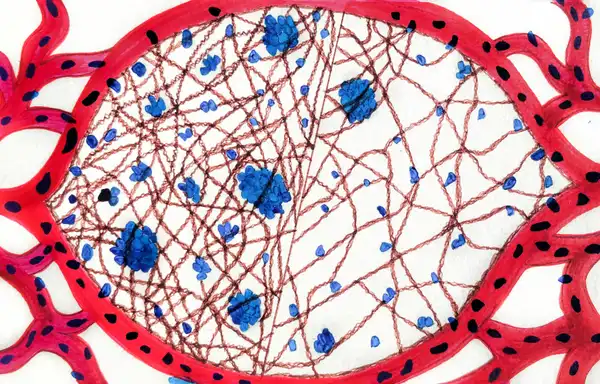
Everything you need to know about stem cells
What are stem cells, and what makes them so unique? What are the different types of stem cells, and how have they impacted modern medical science? Here is us answering all your questions about stem cells.

Scientists have always found metastasis to be quite a mystery. 90 percent of cancer related deaths can be attributed to metastasis and yet we do not clearly understand how this process works. Studies show that fibrotic tissues in the human body harbour high amounts of metastatic out growths, but what could be the reason behind this? Prof. Janine Erler and group aimed to understand exactly this.
A tissue comprises of a group of cells, surrounding which is a microenvironment, largely composed of fibrous proteins like collagen, which gives a solid architecture to the tissue. When a tissue is faced with a stressful event, the cells in the tissue react by secreting an enzyme named LOX (Lysyl Oxidase) which is responsible for crosslinking the collagen fibres in the microenvironment making the structure denser and stiffer. This phenomenon where in this microenvironment becomes stiff and more fibrous, usually due to some kind of injury or tissue damage is termed fibrosis.
To understand how fibrosis might enhances metastasis, the group used a mouse model system. For their study they induced pulmonary and hepatic fibrosis in mice either chemically (using Bleomycin), or radiologically. They found that inhibiting the activity of the enzyme LOX, lead to significantly less fibrotic tissue in these animals. They hence concluded that LOX was an essential mediator of fibrotic microenvironment. (Cox et al., 2013)
They further wanted to explore how the fibrotic environment enhances metastasis. To understand this, they induced tumours in the mice and checked for metastatic burden in the pulmonary and hepatic tissue. They found that the metastatic burden was significantly higher in mice treated with the fibrosis inducing agents as opposed to the ones that weren’t. What they also observed, is that on inhibiting the activity of LOX, there was a stark reduction in metastasis, proving that LOX induced fibrosis was a key player in metastasis.
To understand to what extent the fibrotic environment allows tumour cell colonisation, they injected fluorescent labelled tumour cells in the mice and excised the lungs at different time points. They observed that, as early as at the 72nd hour time point, there appeared to be clusters of metastatic cells in the fibrotic lungs, whereas only single cells were observed in the normal lungs. What this essentially proves is that a fibrotic environment allows for the initial survival and persistence of metastatic cells.
This is the very first time that Collagen crosslinking has been associated to metastasis and allows us the possibility to explore the use of anti-LOX agents in the treatment of metastasis. Not just in cancer, but it also provides insights into tissue fibrosis itself and takes us a step forward in the treatment of fibrotic disease.